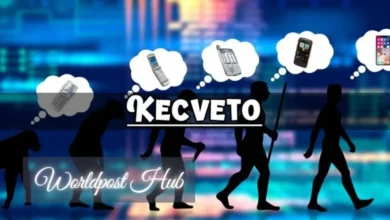Hybrid Learning: The Future of Education?

The COVID-19 pandemic has forced schools to close their doors, and educators have had to quickly adapt to teaching in a virtual environment. However, with the pandemic’s end nowhere in sight, many are now considering a hybrid approach to learning. This involves combining traditional in-person learning with online instruction, providing a more flexible and personalized educational experience. In this article, we will discuss the concept of hybrid learning and its potential to revolutionize education, with a focus on CBSE schools in Bangalore.
What is Hybrid Learning?
Hybrid learning, also known as blended learning, is a teaching model that combines traditional in-person instruction with online learning. Students can attend classes in person or remotely, depending on their preferences or circumstances. Teachers can use various online tools and resources to enhance the learning experience, such as video lectures, interactive quizzes, and virtual discussions.
The Benefits of Hybrid Learning
Hybrid learning offers several benefits for both students and teachers. For students, it provides a more flexible and personalized learning experience. They can choose how they want to attend classes, whether in person or online, depending on their schedule, location, or learning style. Online resources can also help students learn at their own pace and review material as needed.
For teachers, hybrid learning offers new opportunities to engage students and enhance learning outcomes. They can use a variety of online tools and resources to create interactive and engaging lessons, monitor student progress, and provide feedback in real-time. Hybrid learning also allows for greater flexibility in lesson planning and enables teachers to tailor instruction to the needs and interests of individual students.
Hybrid Learning in CBSE Schools in Bangalore
CBSE schools in Bangalore have been quick to adopt hybrid learning in response to the pandemic. Many schools have invested in online platforms and tools to support remote learning, and some have even developed their own customized learning management systems. Teachers have undergone training in online instruction and have developed new pedagogical strategies to engage students in a virtual environment.
Hybrid learning has also enabled CBSE schools in Bangalore to provide a more inclusive and accessible education to students. Students who may have previously been unable to attend classes due to health or mobility issues can now participate in classes remotely. Hybrid learning has also provided opportunities for CBSE schools in Bangalore to expand their reach beyond the local community, with students from across India and even internationally attending classes online.
Challenges and Solutions
Despite the many benefits of hybrid learning, there are also several challenges that must be addressed. One of the main challenges is ensuring that all students have access to the necessary technology and infrastructure to participate in online learning. This can be a particular challenge in rural areas or for low-income families who may not have access to high-speed internet or personal devices.
Another challenge is ensuring that students who attend classes remotely receive the same quality of education as those who attend in person. Teachers must develop strategies to engage remote students and provide opportunities for collaboration and interaction with their peers.
CBSE schools in Bangalore have addressed these challenges by providing students with access to technology and support, such as loaner devices and technical assistance. They have also developed strategies to engage remote students, such as virtual discussions and collaborative projects.
Conclusion
Hybrid learning has the potential to revolutionize education, providing students with a more flexible and personalized learning experience and enabling teachers to engage students in new and innovative ways. CBSE schools in Bangalore have been quick to adopt hybrid learning in response to the pandemic, and have developed strategies to address the challenges that come with this new approach to education. With the right support and infrastructure, hybrid learning can become the future of education.
ducation?






Hola, volia saber el seu preu.